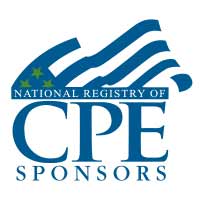Classroom Sessions:
INTRODUCTION
Oil and gas field operations are inherently complex, involving high-value equipment and presenting significant health, safety, and environmental considerations. These operations span multiple phases—from initial exploration to recovery, production, and treatment processes.
This GLOMACS five-day training course on Oil & Gas Field Operations and Commingled Productions Allocations offers participants a comprehensive understanding of advanced field operations and production practices. It explores the integrated processes of commingled production and provides a clear overview of the various handling and treatment systems used across oilfields. Delegates will gain insights into reservoir fluid dynamics, downhole flow behavior, and surface processing facilities. The training course is ideal for professionals seeking a broader perspective of the oil and gas sector, its technologies, and recovery methods.
Participants will gain knowledge in:
- Cutting-edge production technologies and operational methods
- The commingled production process and its strategic role in field development
- Fundamentals of production facilities and oilfield equipment
- Reservoir and surface system behavior
Objectives
By the end of this training course, participants will be able to:
- Identify key advancements in oil and gas technology, including seismic imaging, well-logging, directional drilling, and hydraulic fracturing
- Understand global oil and gas industry trends and statistics
- Distinguish the roles and infrastructure across upstream, midstream, and downstream segments
- Evaluate various exploration, drilling, production, treatment, and transportation techniques
- Gain clarity on the full operational flow—from reservoir to end-user delivery
- Analyze operational challenges and apply troubleshooting methods
- Comprehend the concept and significance of commingled production
- Understand allocation methodologies for shared production across reservoirs and platforms
- Review primary, secondary, and enhanced recovery methods
- Conduct economic and risk assessments for field development projects
Training Methodology
This accelerated and interactive training course is designed to encourage delegates’ participation through a combination of group discussion, practical case studies, and an extensive use of short videos highlighting the critical oil & gas operations, environmental and safety considerations to reinforce new knowledge and skills, and discussions of practical issues in their organization.
Organisational Impact
Organizations will benefit from participants who return with a strong grasp of both the technical and strategic aspects of oil and gas field operations. This training will support:
- Enhanced team performance and integration across departments
- Adoption of the latest technologies in drilling, production, and recovery
- Improved coordination between upstream, midstream, and downstream activities
- Application of interdisciplinary approaches to solve operational challenges
- Accurate economic evaluations of field development and production plans
- Implementation of effective commingled production strategies
Personal Impact
Participants will leave the training course equipped with critical knowledge and practical skills to support their professional development. Key takeaways include:
- Proficiency in managing and operating oil and gas fields using modern techniques
- Capability to assess and classify reserves effectively
- Familiarity with enhanced recovery methods, artificial lift, and stimulation practices
- Understanding of common operational issues and how to resolve them
- Knowledge of techniques for commingled production
- Ability to apply economic principles in developing optimal reservoir management strategies
WHO SHOULD ATTEND?
- Corporate Planners & Supply Planners
- Senior Oil and Gas Business Managers
- Engineers, Geologist & Financial Analysts
- Earth Scientists, Technicians, and Analysts
- Human Resource Personnel
- Health, Safety and Environment Regulators
- Investment Bankers
- Fund Managers
- Investment Analysts
- Government Agencies
DAY 1
Global Aspects of Oil & Gas Exploration and Drilling Operations
- Introduction to the Programme
- The Oil & Gas Industry Segments/Oil & Gas Industry Components
- Upstream, Midstream Downstream Operations
- Global Energy Statistics: Reserves, Production, Consumption
- Oil Price Volatility
- The Origin of Oil
- Exploration and Seismic Operations
- Geophysical Prospecting and Reservoir Geology
- Drilling Operations and Technologies
- Well Logging Operations
- Well Completions & Casing
- Well Completion Equipment
- Optimizing production from Multilaterals
- Identifying Competition between Laterals
- Vertical and Horizontal Wells Technologies
- Applicability to Vertical, Deviated and Horizontal Wells
DAY 2
Reservoir Engineering Concepts
- Rock and Fluid Properties
- Darcy’s Law
- Phase Behavior
- Oil Density, Oil Viscosity
- Other Properties
- Reserves Classifications
- Reserves Determination/Estimates
- Volumetric Calculations – Original Oil & Gas In-Place
- Decline Curve Analyses
- Material Balance Calculations
DAY 3
Oil & Gas Production Technologies
- Production Methods and Facilities
- Well Flows Systems
- Well Damage and Treatment (Formation Damage and Stimulations Operations)
- Applicability to Pumping Wells
- Oil & Gas Production (Artificial Lift Methods)
- Sucker Rod Pumping
- ESP
- Gas Lift
- Hydraulic Pumping
- PCP
DAY 4
Enhanced Oil Recovery Technologies
- Reservoir Management – Recover Sequence
- Drive Mechanisms
- Oil & Gas Enhanced Recovery Methods
- Thermal EOR Methods
- Chemical EOR Methods
- Miscible EOR Methods
- MEOR Technologies
DAY 5
Oil & Gas Pressing, Economics and Decision-making
- Commingled Production Process & Equipment/ Flowlines
- Products Specifications
- Impurities
- Corrosion & Scale Control
- Separation Processes
- Allocation Process and Methods to Allocate Commingled Production
- Oil & Gas Treatment and Facilities/ Oil and Gas Processing Operations
- LPG and NGL recovery
- Oil Storage
- Refinery Operations and Products
- Field Safety Introduction
- What are project management, its considerations, tools & techniques?
- Oil & Gas Field Development Economic Evaluation
- Economic Analysis
- Economic Limit
- Project Economics: Net Present Value, Internal Rate of Return
- Investment Decision Making
- On successful completion of this training course, GLOMACS Certificate will be awarded to the delegates
- Continuing Professional Education credits (CPE) : In accordance with the standards of the National Registry of CPE Sponsor, one CPE credit is granted per 50 minutes of attendance
Endorsed Education Provider
GLOMACS is registered with the National Association of State Boards of Accountancy (NASBA) as a sponsor of continuing professional education on the National Registry of CPE Sponsors. State boards of accountancy have final authority on the acceptance of individual courses for CPE credit. Complaints regarding registered sponsors may be submitted to the National Registry of CPE Sponsors through its website: www.NASBARegistry.org
In Association With

PetroKnowledge
Our collaboration with Petroknowledge aims to provide the best training services and benefits for our valued clients

KC Academy
Our collaboration with KC Academy aims to provide the best training services and benefits for our valued clients
GLOMACS Training & Consultancy
Typically replies within an hour


